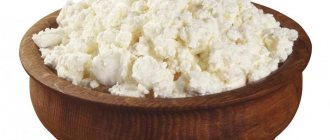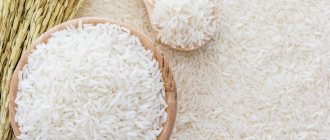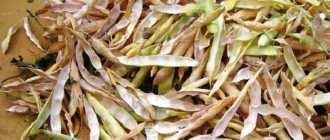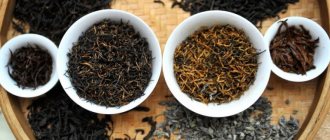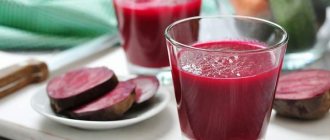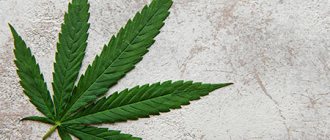The role of the drink in diabetes
Coffee can be consumed by those who do not have any particular health complaints. You should be careful: abuse of the product can negatively affect the body. Possible disturbances in heart rhythms, sleep disturbances and deterioration in appearance: dull hair and skin, darkening teeth. The release of caffeine from beans into the bloodstream stimulates the production of stress hormones: you may feel coldness in your palms, increased heart rate and sweating. At the same time, this product also has a number of positive qualities. One of the main advantages of such a chronic disease as diabetes is its low calorie content. Naturally, without taking into account additives such as sugar and milk, which soften the taste of the drink. Such additives can cause a sharp jump in blood glucose levels, especially if the milk has a high fat content. In order to protect yourself with the maximum probability from possible negative consequences, you should use the prepared product in its pure form. Also, people suffering from diabetes do not have the opportunity to recharge their brain activity with sweets and simple carbohydrates such as glucose and fructose. In this case, caffeine will come to the rescue. Even in small concentrations, it will increase reaction and improve attention, as well as gather strength.
Products recommended for consumption
Diet for type 2 diabetes does not limit the consumption of the following foods:
- Vegetables and fruits (fresh and frozen) that do not contain carbohydrates, as well as some categories of legumes (young beans and peas, lentils);
- Milk products. It is recommended to choose low-fat natural (without additives) yoghurts, cottage cheese and milk;
- Meat. It should also be dietary: chicken and turkey (without skin), rabbit, young lamb, veal;
- Seafood. Low-fat varieties of fish (without skin), oysters, lobsters, scallops, mussels are useful;
- Spices: any herbs, pepper;
- Sauce – mustard;
- Drinks: tea and coffee (filtered or instant) without added sugar, mineral water.
These products fully satisfy the concept of “healthy nutrition”, so they can be consumed with virtually no restrictions. However, it is worth making sure that the number of calories consumed approximately corresponds to the number of calories burned during the day.
Effects on people with type 1 and type 2 diabetes
Most doctors and nutritionists note the positive effect of the drink on the condition of people with both type 1 and type 2 diseases. The fact is that caffeine increases the body's sensitivity to insulin and can temporarily normalize blood glucose levels. In the case of type 1 disease, there is a reduction in the duration of nocturnal hypoglycemia by almost three times - from 130 minutes to 50. However, it should be remembered that the reaction of each organism is individual and unpredictable. Regardless of the type of disease, coffee should be consumed with caution in cases of cardiovascular diseases, as it will create additional stress on the cardiac system. If you still want to protect yourself from possible negative effects on the body, then make your choice in favor of caffeine-free beans. In general, moderate and infrequent consumption of such an invigorating product is acceptable for both types of diabetes.
Possible negative consequences
Excessive consumption of coffee can cause significant harm to health. Considering that most diabetics have a number of concomitant diseases or abnormalities in the functioning of the body, the effects of coffee beans can be negative:
- Load on the heart. The same theophylline that helps free breathing also increases heart rate.
- Increased symptoms of hypertension. With an adrenaline rush provoked by caffeine, blood pressure (BP) levels increase.
- Neuropsychological disorders. Overstimulation of the central nervous system after excessive coffee drinking can cause excessive agitation, irritability, and dysania (sleep disorder).
- Increased blood clotting. Excess caffeine leads to thrombocytosis (increased concentration of platelets in the blood);
- Diuretic effect. The diuretic effect of the drink, if abused, can lead to dehydration (dehydration) of the body.
- Osteoporosis. If you drink unlimited amounts of coffee, it will “wash out” calcium, which leads to the methodical irreversible destruction of bones.
It’s not for nothing that addiction to the drink is called coffee addiction. According to scientific data, caffeine can cause addiction, akin to drugs (addiction). Drinking coffee requires special attention if you have gestational diabetes mellitus.
During the perinatal period, women are advised to minimize the amount of the drink in their diet or eliminate it completely. The negative effects of caffeine can provoke fetoplacental insufficiency, cardiac dysfunction in the expectant mother and child, and nervous overexcitation.
Important! The balance between the positive and negative effects of coffee on the body depends on its dosage. In moderate quantities, grains will not harm the body. Excessive consumption can seriously undermine your health.
Soluble or natural
During the production of freeze-dried granules, many of the taste and aroma properties of fresh grains are lost. To make the drink look like freshly brewed, during the production of granules, artificial flavors and taste enhancers are added to it. You should not expect any benefit from such a product; on the contrary, regular use of artificial additives can be harmful, especially to an organism already weakened by a chronic disease.
Thus, when choosing a flavored drink, you should opt for natural options and high-quality fresh beans. Make sure that all grains are whole, have no chips and have a uniform, uniform color. Naturally, the final benefit and harm is determined by the volume consumed; you should also avoid extraneous additives and at the same time monitor your blood pressure and blood glucose levels.
Benefits of tea
Black, green and oolong teas contain polyphenols, molecules that scientists believe may improve insulin sensitivity, prevent the development of inflammatory diseases, and also have anti-carcinogenic properties. This applies to all types of drink, but green tea is still considered healthier. It contains higher levels of polyphenols because it is made from unfermented leaves.
Black tea, on the other hand, is made entirely from fermented plants, which deprives it of some of its beneficial properties. In addition, some types of black tea contain 2-3 times more caffeine, which can negatively affect your health.
Coffee Recipes for Diabetics
In case of such a chronic disease, it is recommended to drink freshly brewed coffee from natural beans. The most gentle and mild option is beans purified from the active substance caffeine or green coffee - such beans have not been subjected to heat treatment, and drinks based on them have the mildest taste. There are also alternatives to an invigorating drink with a similar taste: chicory, cocoa, Jerusalem artichoke drink.
Jerusalem artichoke coffee
When purchasing fresh Jerusalem artichoke fruits, you need to prepare them before preparing a hot drink.
Ingredients:
- 30 grams of dried Jerusalem artichoke fruits
- A teaspoon of Royal Forest Jerusalem artichoke syrup
- 250 ml water
Cooking steps:
- Grind the required amount of fruit. To do this, cut them with a knife or chop them on a coarse grater.
- Dry the crushed fruits. It is best to do this outdoors or in the sun.
- Fry the dried fruits in a dry frying pan.
- Immediately before preparing a hot drink, grind the dried and roasted fruits in a coffee grinder.
- Place the crushed fruits in a pot and fill with water.
- Cook the drink over low heat until lightly boiling, about 5-7 minutes.
- Add a small amount of Jerusalem artichoke syrup to the finished slightly cooled drink for a sweeter taste.
Cold mochaccino in French
Ingredients:
- 250 ml water
- A teaspoon of ground coffee
- 100 ml skim milk
- 2 tbsp. l. Royal Forest cocoa powder
- crushed ice
Cooking steps:
- Place the ground grains in a Turk and fill with water.
- Simmer the drink over low heat for about 3 minutes.
- Add cocoa powder to the Turk, continue to cook the drink until ready, about 4 minutes.
- Pour the hot drink into a glass, let it cool, add milk and ice.
Synthetic biology and genes
Synthetic biology is often described as “a blend of engineering design and biology.” Recent developments in this direction have allowed scientists to create artificial genes for medical and biological purposes.
Artificial genes reprogram cells. As a result, they begin to use their internal mechanisms in new ways.
One use of such genes is to create “molecular switches.” With their help, it is possible to control immune cells for more targeted and safe cancer treatment.
When developing such genes, scientists encounter a lot of difficulties. Among them is the need to choose such a mechanism of activation so that the gene cannot be activated accidentally, and its reaction is limited and does not harm the person.
Beneficial properties of coffee
Coffee beans are a low-calorie product, which is very important for diabetics. In addition, it contains many substances valuable to humans, in particular:
- linoleic acid – indicated for people suffering from various cardiovascular pathologies;
- caffeine and theobromine are plant alkaloids that have a stimulating effect on the nervous system and tonic the body;
- pectins are essential dietary fibers that ensure the formation of normal stool and its easy evacuation from the intestines;
- chlorogenic acid – accelerates the breakdown of fat cells and has a beneficial effect on metabolism;
- B vitamins – improve the functioning of the nervous system as a whole;
- Vitamin P – has a positive effect on the condition of the walls of blood vessels.
The grains also contain compounds that have anti-inflammatory properties. Therefore, high-quality coffee helps not only to cope with banal inflammatory processes faster, but also to recover more quickly after surgical interventions.
Therapy and habit as one
According to scientists, caffeine is one of the most successful options for a substance that activates the peptide production mechanism. It is non-toxic, inexpensive, and only found in certain drinks.
Among other things, the report notes that treatments using synthetic genes that respond to common foods without the use of special chemicals can be tailored to each patient individually.
By combining therapy with habit, the researchers indicate that this approach will make patients more willing to adhere to a treatment regimen. In conclusion they say:
“By focusing on daily habits, this type of treatment can be seamlessly integrated into each person's lifestyle. This will usher in a new era of personalized medicine.”
